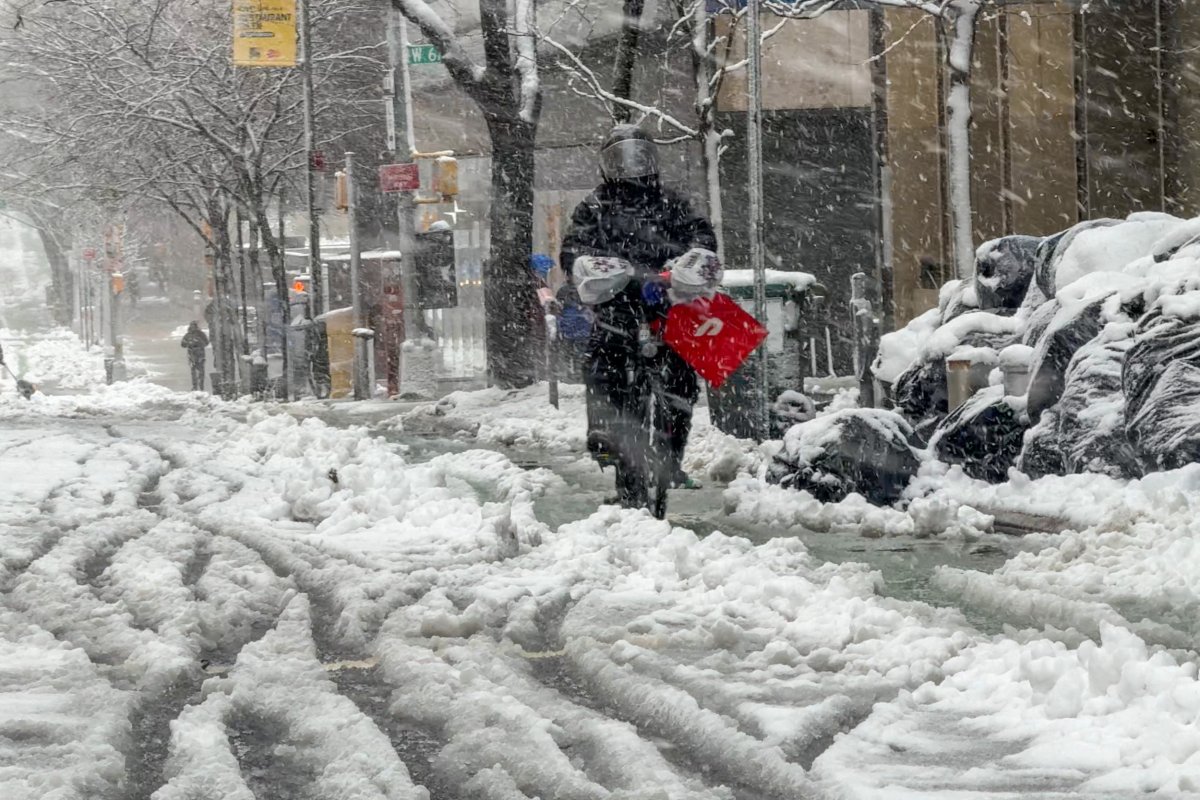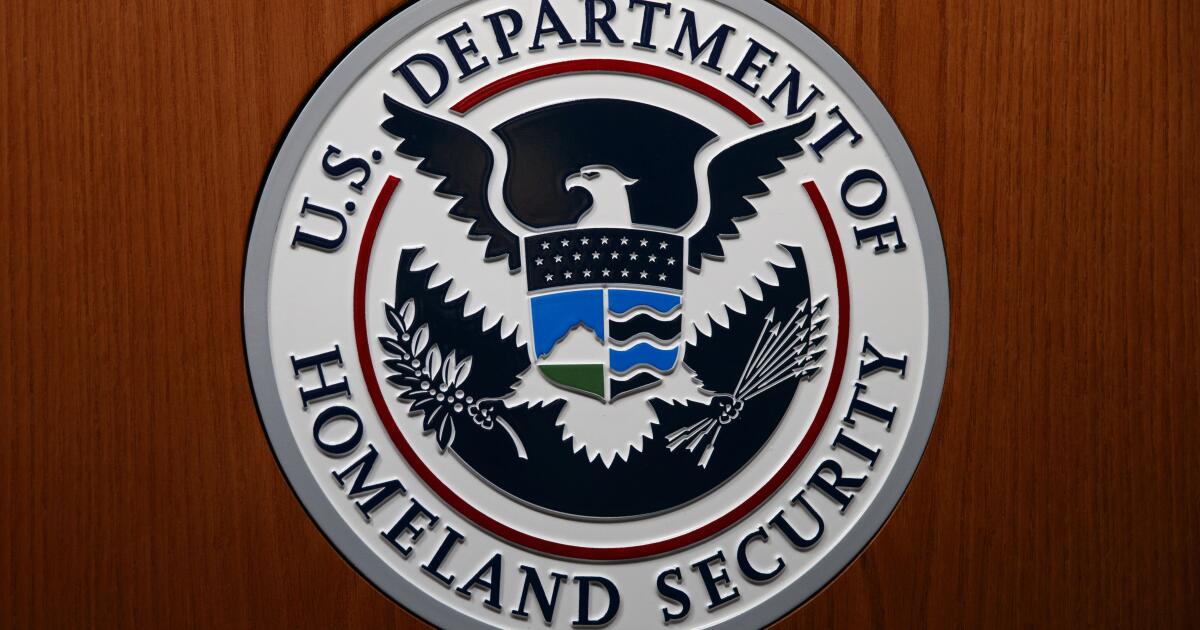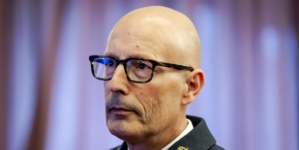-
Enormous Russian Arms Depot Explodes, Emptying Nearby Villages - 21 mins ago
-
How Cam Ward built his unshakable confidence: ‘He has a boulder on his shoulder’ - 25 mins ago
-
Dow soars more than 1,000 points amid relief rally - 28 mins ago
-
‘Save Me’ singer Jelly Roll could get pardoned for past convictions - 31 mins ago
-
Trump stops Maine’s funding over transgender athletes. Could California follow? - 40 mins ago
-
Gen X Mom’s Message for Young Women Goes Viral—’Some Things Just Take Time’ - 60 mins ago
-
Chris “The Bear” Fallica’s 2025 NFL Mock Draft - about 1 hour ago
-
New taxes will soon dwarf the billions spent on homelessness in the last decade. Who’s watching over it? - about 1 hour ago
-
First autonomous AI agent is here, but is it worth the risks? - about 1 hour ago
-
Everything New on Netflix in May 2025 - 2 hours ago
Klarna and DoorDash: Is Buy Now, Pay Later on Food a ‘Recession Indicator’?
DoorDash and Klarna have said their new partnership, offering customers the option to finance their orders in installed payments, will increase convenience for those using the service.
However, some have expressed concerns the partnership may lead to reckless spending, while others suggest it could signal the already significant financial difficulties faced by Americans and the possibility of an economic downturn in the nation’s near future.
Why It Matters
A growing number of Americans are struggling under soaring credit card balances and an increasing risk of defaults. In addition, economic concerns are mounting, as stock market volatility, persistent inflation, and the expected effects of President Donald Trump’s trade policies contribute to a bleak outlook.
With many Americans already feeling pessimistic about the state of the economy, these factors may further fuel fears that the U.S. is on the brink of a recession.
The most recent U.S. recession was in 2020 at the beginning of the COVID-19 pandemic.
What To Know
Klarna, a global payments and shopping service that offers “buy now, pay later” (BNPL) options, announced on Thursday that customers of DoorDash, a popular online food ordering and food delivery service, can now choose to pay for their meals, groceries and DashPass annual plans in full, four interest-free installments, or postpone payments to a later date.
Although designed to provide individuals with flexible payment options for their meals and grocery orders, the plan has faced criticism from social media users who say it highlights the financial hardship of average Americans and raises further concerns about the overall health of the U.S. economy.
“You know the economy is not well when you have to put your DoorDash meal on layaway,” X, formerly Twitter, user QE Infinity wrote on Thursday.
Caroline Renard posted to X on Thursday: “This isn’t even recession indicator, this is we’re about to have a second Great Depression indicator.”
X user Domo simply wrote: “Now this is a recession indicator.”
In response to these sentiments, Klarna posted a blog to its website in which it compared the new deferred payment option to the use of credit cards.
“Because there is no interest, our business model relies on customers repaying us on time, unlike credit cards. So we conduct a thorough eligibility check before approving a purchase, and if a customer misses a payment, we restrict their use of our services—something credit card companies wouldn’t do, as they profit from late and revolving payments.”
It continued: “This prevents debt from piling up—99% of our lending is repaid, and our losses are far below credit card industry standards. Consumers who use BNPL owe less, and repay more, than credit card users. The average Klarna customer owes us $100; for credit cards this is $7,236.”
In recent years, Americans have faced growing levels of debt. According to the latest household debt and credit report from the Federal Reserve Bank of New York, total household debt climbed by 0.5% to a record $18.04 trillion in the fourth quarter of 2024. This increase was largely fueled by a surge in credit card balances, which rose by $45 billion from the previous quarter and reached $1.21 trillion by the end of December.
According to the most recent survey from the University of Michigan, consumer sentiment plunged to 57.9 in March from 64.7 in February, well below forecasts and at its lowest level since November 2022. While assessments of current conditions were largely unchanged, consumer expectations dropped to 54.2 points from 64.0, indicating increased pessimism regarding many aspects of the economy, including personal finances, labor markets, business conditions and inflation. In addition, year-ahead inflation expectations spiked to 4.9 percent from 4.3 percent in February, also reaching their highest level since November 2022.
Cheng Xin/Getty Images
What People Are Saying
Klarna and DoorDash told Newsweek in a statement: “It’s also important to note that DoorDash customers can pay in full using our interest-free instant debit option or choose our interest-free Pay in 4 for orders over $35. Both options will appear at checkout alongside credit cards right away, with Pay Later rolling out at a later date.”
President Donald Trump earlier this month on Fox News when asked about the possibility of a recession: “I hate to predict things like that. There is a period of transition because what we’re doing is very big. We’re bringing wealth back to America. That’s a big thing… it takes a little time, but I think it should be great for us.”
New Jersey Representative Frank Pallone, a New Jersey Democrat, via X on Friday: “If people need buy now, pay later to afford dinner from DoorDash, that’s not a win—it’s a warning. Wages aren’t keeping up, Trumpflation is squeezing budgets, and it’s just payday lending in disguise. Klarna’s IPO may soar, but consumer debt is the real story.”
Economist Gary Hufbauer told Newsweek: “This scheme is a barometer of true desperation. People who are paying for their next meal in installments have reached the end of the line.”
Personal finance expert George Kamel told Newsweek: “I love a good delivery order as much as the next guy, but if you have to finance your DoorDash with Klarna, that’s not convenience—that’s a crisis. We’ve normalized debt so much that now it’s okay to go into payments for burgers and fries? That’s not helping people—it’s preying on them.”
He added: “Splitting up payments for dinner doesn’t fix your budget—it hides the fact that you don’t have one. Klarna is the new credit card—without the plastic. And teaming up with DoorDash means people can now eat their way further into debt, four payments at a time.”
Nitika Garg, consumer behavior researcher at the University of New South Wales, Sydney, told The Washington Post: “With declining financial savviness in consumers, I would expect these features to be used more. Especially if economic conditions are less than ideal, such as with consumers experiencing the cost-of-living crisis or recession conditions.”
Yahoo Finance reporter and commentator Alexandra Canal said: “We’ve seen this shifting consumer sentiment, this decrease in consumer confidence, this expectation that we’re going to have inflation elevated over the long term and we know that a lot of consumers, they’ve been pretty squeezed when you go to the grocery store. So the fact that we’re seeing this buy now pay later partnership for DoorDash, I think could be a positive.”
Anand Subbarayan, head of Money Products at DoorDash said: “As we expand DoorDash’s offerings—from groceries and beauty to electronics and gifts—flexible payment options are essential to meeting our customers’ needs.”
Chief Commercial Officer of Klarna, David Sykes said: “Our partnership with DoorDash marks an important milestone in Klarna’s expansion into everyday spending categories.”
Klarna, in a Thursday blog post on its website: “For a healthier financial future, debit cards and Buy Now, Pay Later should replace high-cost, revolving credit. Americans should put most of their day-to-day spend on a debit card and use interest-free, installment credit for the few times they need to access credit. Including on DoorDash.”
What Happens Next?
Last week, Klarna filed its IPO prospectus with the U.S. Securities and Exchange Commission (SEC), with the BNPL giant planning to go public on the New York Stock Exchange under the ticker “KLAR” at some point in the near future.
The company has not yet disclosed the date of its IPO, nor the number and pricing of the shares to be offered.

Alexi Rosenfeld/Getty Images
Source link





























